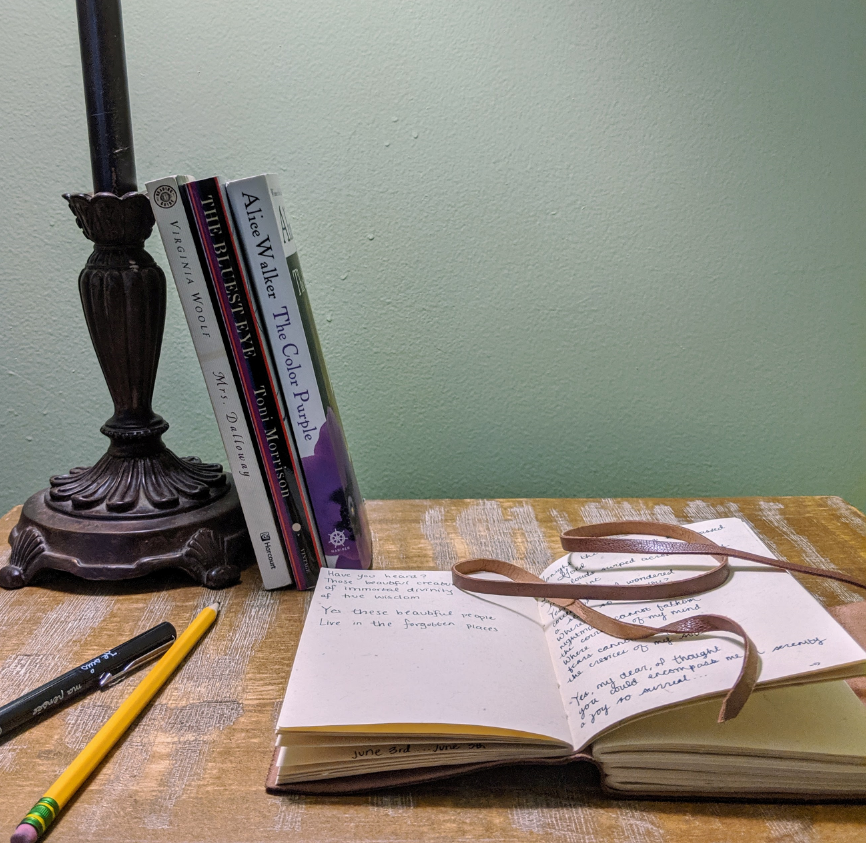Over the last few months, I’ve been working with my university’s small press Reed Magazine, participating in a fabulous writing group, teaching college English, attending new classes for my MFA, and revising some of my own writing. With all of this work, I’ve had a lot of time to reflect on my writing journey and wanted to share some thoughts.
As many know, my writing journey began over a decade ago. In this time, I’ve accomplished a lot, both in the writing industry and elsewhere. My initial publications (At Center Line, 2016 and Beyond Center Line, 2020) were fabulous examples of me as a young writer, but now they seem like immature and incomplete attempts to hone my skills. Though, I understand that I must give myself some grace. My first novel was written in middle school, and my second novel was not reviewed nearly enough.
But what have I learned? Quite a few things actually.
First: editing and revising is difficult, but it can be the best part of the writing process. This took a lot of time to realize, but if you can push past the disappointing and frustrating parts of rereading your own work, editing and revising can be quite fulfilling. While writing the story itself is exhilarating, editing and revising is a whole other level of excitement. Not only are you reviewing your creation, but there’s a new opportunity to create and refine the chaos that creates beauty.

I’ve also learned that rushing the publishing process is detrimental to reputation, experience, and overall quality. Of course, I’m proud of my publications and of my ambition as a younger person. But I am beginning to see just how much better I could be as a writer if I had just waited. Today, I’m still just as ambitious and impatient, which can sometimes be a recipe for disaster. However, my newfound love for revising combined with my passion for creating, and my nature of a perfectionist, has balanced out (I think…I hope).
During undergrad, I had a lot of encouragement to continue writing, publishing, and expanding my network in the writing community. All of this advice was super helpful as I emerged into the writing industry, and I created a Submittable account, presented at conferences, expanded my social media outreach and branding, and began researching the publishing industry, and eventually applied to several MFA programs in hopes of becoming an English professor or working in publishing. In this stage of my life, I learned that there are a number of ways to enter into the writing industry and like many things in life, there’s no “right way” to be a writer.
Since beginning my MFA, a lot of my experience from undergrad has been put to the test. From tutoring for a different university, to experimenting with my own writing, to challenging my pedagogical skills, I’ve been considering how my undergrad set me up for grad school and full career. Luckily, I feel very prepared. Yet, I also am constantly failing, learning, trying again, and sometimes succeeding in whatever endeavors I’m facing.
Now that I’m officially a year into my MFA, I’ve heard a lot of different opinions on publishing, academia, and writing. Much of this advice is from professors, but also from fellow students who have had years of experience in writing and publishing.
- Take time away from projects, like months or years.
- Try writing side stories or plotlines to develop characters or plots.
- Don’t focus on publishing, focus on becoming a better writer.
- Read as much as you can because it’ll expand your vocabulary and ideas.
- Don’t end your chapter on a plot point, land it on an emotional point.
- Write multiple drafts, including brain dumps, comment drafts, and highlighted drafts.
- Support local presses and authors to expand your network.
- Learn how to be objective when reading. Just because you don’t like something doesn’t mean it’s bad.
- When you have an idea, write it down (or track it somewhere) immediately.
- Just because another writer seems to have it all together, doesn’t mean that you should.
- Your route doesn’t have to be like everyone else’s.
- There will be a lot of times when you’re right, but that doesn’t mean everyone needs to know that.
- Your writing doesn’t always define what you’re actually capable of as a writer.
Not all of this advice is helpful, and some of it is hard for me to accept at times. Nevertheless, all of it has grown into my approach as a writer in the publishing industry and in academia. As you continue writing, I hope some of this advice helps ease your worries.
